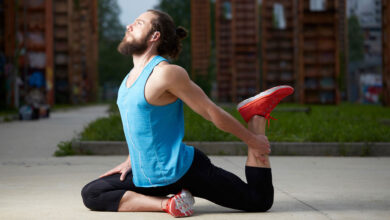When it comes to athletic performance, hydration is often overlooked, yet it plays a critical role in how well athletes perform. Water is essential for nearly every bodily function, from regulating temperature to transporting nutrients. In this article, we’ll explore why hydration is so important for athletes and how to ensure you’re drinking enough.
1. Understanding the Role of Water in the Body
Water makes up about 60% of the human body and is vital for maintaining homeostasis. Here’s how hydration impacts athletic performance:
- Temperature Regulation: During exercise, your body temperature rises. Sweating helps cool you down, but if you’re not properly hydrated, this cooling mechanism becomes less effective, increasing the risk of heat-related illnesses.
- Nutrient Transport: Water aids in the transportation of nutrients to cells and the removal of waste products. Adequate hydration ensures your muscles receive the necessary fuel to perform optimally.
- Joint Lubrication: Proper hydration helps keep joints lubricated, reducing the risk of injury and allowing for smoother, more fluid movements during physical activity.
2. Signs of Dehydration
Recognizing the signs of dehydration is crucial for athletes. Here are some common symptoms:
- Thirst: This is the most obvious sign but often comes too late; it means your body is already dehydrated.
- Dark Urine: A darker color can indicate dehydration. Ideally, your urine should be light yellow.
- Fatigue: Feeling unusually tired or sluggish can be a result of inadequate hydration.
- Dizziness or Headaches: These symptoms can arise when the body is lacking sufficient fluids.
3. Hydration and Athletic Performance
Dehydration can significantly impair athletic performance. Studies have shown that losing just 2% of your body weight in fluid can lead to reduced endurance, strength, and overall athletic performance. Here’s how hydration impacts different aspects of sports:
- Endurance: For endurance athletes, maintaining hydration can be the difference between finishing strong and hitting the wall. Even mild dehydration can lead to decreased endurance and increased perceived exertion.
- Strength and Power: In sports requiring bursts of strength, such as weightlifting or sprinting, dehydration can lead to reduced muscle power and increased fatigue.
- Mental Focus: Hydration also affects cognitive function. Athletes may experience decreased concentration and coordination when dehydrated, which can impact performance and increase the risk of injury.
4. How Much Water Do You Need?
The amount of water each athlete needs can vary based on factors like age, gender, body size, and the intensity of the activity. However, a general guideline is:
- Before Exercise: Drink 16-20 ounces of water at least an hour before physical activity.
- During Exercise: Aim for 7-10 ounces of water every 10-20 minutes during exercise.
- After Exercise: Rehydrate with 16-24 ounces of water for every pound lost during exercise.
5. Hydration Strategies for Athletes
Here are some practical tips to ensure you stay hydrated:
- Carry a Water Bottle: Keep a refillable water bottle handy throughout the day and during workouts.
- Monitor Fluid Loss: Weigh yourself before and after workouts to understand how much fluid you lose and adjust your intake accordingly.
- Incorporate Electrolytes: For prolonged or intense exercise, consider drinks that contain electrolytes to replenish sodium, potassium, and other essential minerals lost through sweat.
- Set Reminders: If you often forget to drink water, set reminders on your phone or use hydration apps to stay on track.
6. Food Sources for Hydration
Don’t forget that hydration doesn’t only come from beverages! Many fruits and vegetables have high water content and can contribute to your overall fluid intake:
- Watermelon: Contains about 92% water.
- Cucumbers: About 95% water, making them a refreshing snack.
- Oranges: Juicy and hydrating, perfect for a post-workout boost.
Conclusion
Hydration is a crucial aspect of athletic performance that should not be ignored. Understanding the importance of staying hydrated can help athletes improve their performance, enhance recovery, and reduce the risk of injury. By implementing good hydration practices and listening to your body, you can ensure that you’re always ready to perform at your best. So, grab that water bottle, hydrate wisely, and watch your performance soar!




